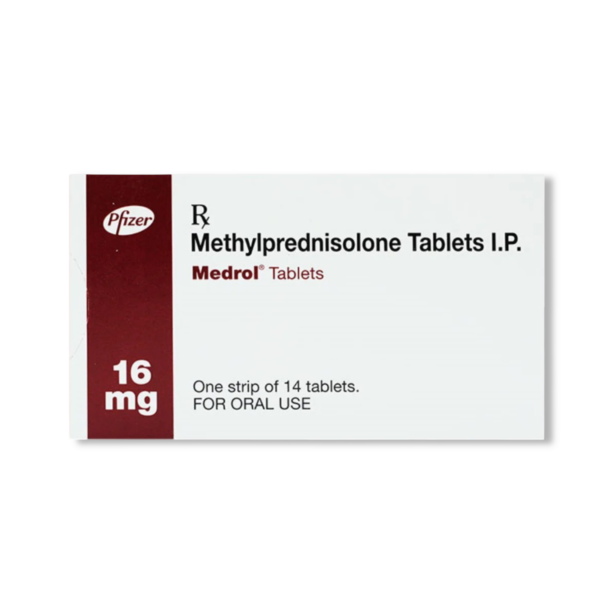Rheumatoid Arthritis (RA) is usually associated with symptoms, such as joint pain, stiffness, and swelling, but many people are shocked to hear that it can also cause hair loss too. For those with RA, finding extra hair in the brush or shower drain can be frustrating and puzzling.
So, does Rheumatoid Arthritis cause hair loss, or are there other associated factors to blame?
While not everyone with RA has hair loss, it is a serious concern for many and can have an impact on self-esteem and emotional health.
In this article, we’ll look at how does Rheumatoid Arthritis cause hair loss, what factors are involved, and how to manage it.
Does Rheumatoid Arthritis cause hair loss?
Yes, Rheumatoid Arthritis can lead to hair loss, but not always directly. Most of the time, several other indirect factors linked to RA lead to hair thinning or shedding. These include RA medicines, systemic inflammation, associated autoimmune diseases, stress, and nutritional deficiencies.
Now, let’s have a look at these factors behind Rheumatoid Arthritis hair loss in detail:
Save up to 90% on your medicine bills

Medrol 16 Mg Tablet

Omnacortil 10 Mg Tablet

Depo-Medrol 40 Mg Injection 1ml

Omnacortil 40 Mg Tablet
RA medications
The medications used to treat RA significantly contribute to hair loss among patients. The major Rheumatoid Arthritis medications that cause hair loss include:
- Methotrexate: This Disease-modifying Antirheumatic Drug (DMARD) is a key component of RA therapy. It can cause hair loss in 1% to 3% of users by inhibiting cell proliferation, including hair follicle cells. Methotrexate also reduces folate absorption, which is necessary for hair health. Supplementing with folic acid is frequently suggested to minimize this adverse effect, though it may not completely prevent hair loss.
- Leflunomide: Another DMARD, Leflunomide, is linked to hair loss in around 10% of users. It is occasionally taken with Methotrexate, perhaps increasing the risk.
- Biologics: These are genetically designed medications that target specific immune system components involved in inflammation. While biologics, such as Etanercept and Adalimumab, are less likely to induce hair loss than standard DMARDs, they have been related to hair thinning in rare cases. The exact procedure is not entirely known. According to a case study published in the International Journal of Trichology in 2019, Etanercept can cause Alopecia (male pattern hair loss) in those susceptible to the disorder.
- Steroids: Because of their significant anti-inflammatory properties, corticosteroids, including Prednisolone are occasionally used to treat RA flares in the short term, but hair loss is a possible side effect of steroids.
Systemic inflammation
RA is a systemic illness, which means it affects the whole body. Chronic inflammation caused by RA can affect several bodily systems, including the epidermis, which contains hair follicles. In rare cases, the immune system’s attack on healthy tissues may spread to the hair follicles, interrupting the natural hair development cycle. This might result in hair thinning or shedding. However, significant hair loss caused by RA is considered uncommon.
Associated autoimmune diseases
People with RA are at higher risk for other autoimmune diseases, some of which directly cause hair loss. For example, Alopecia Areata, where the immune system attacks hair follicles, is more common in RA patients, resulting in patchy or even significant hair loss.
Thyroid diseases, which are also autoimmune, can affect hair growth and texture. As per a study published by The Cureus Journal of Medical Science in 2023, severe and chronic thyroid dysfunction, such as Hypothyroidism (low thyroid hormone) or Hyperthyroidism (high thyroid hormone), can cause hair loss in the majority of people with the illness.
Hence, if someone with RA loses a lot of hair, it’s crucial to rule out the possibility of another autoimmune disorder.
Stress
Living with a chronic, painful illness such as RA can cause significant physical and emotional stress. This stress can cause a condition known as Telogen Effluvium (TE), where more hair than usual reaches the shedding phase, which may result in lost hair a few months later.
TE is generally transient and resolves as the stressors are addressed, but it can still be apparent and cause Anxiety.
Nutritional deficiencies
Deficiency of particular vitamins and minerals can lead to significant hair loss in patients with RA. Chronic inflammation from RA can impair the body’s capacity to absorb and use essential nutrients, resulting in shortfalls that affect hair health.
The Dermatology and Therapy journal published a study in 2018 that covered iron, Vitamin D, zinc, biotin, and Vitamin B12 as minerals often examined in cases of hair loss. However, it was noted that there is insufficient evidence to indicate a direct association between these nutritional deficits and hair loss, and routine testing is typically not recommended unless clinical concern arises.
Iron is particularly significant since low amounts can alter the hair development cycle, resulting in thinning. Furthermore, medications used to treat RA may reduce appetite or affect digestion, limiting nutritional intake. Over time, these deficiencies can damage hair follicles, resulting in brittle strands and excessive shedding.
Managing hair loss associated with RA
Rheumatoid Arthritis hair loss treatment often involves the following measures:
- Take folic acid: Often prescribed with Methotrexate to reduce hair thinning.
- Check nutrient levels: Ensure adequate iron, vitamin D, zinc, and biotin.
- Use mild hair products: Avoid harsh chemicals and excessive hair styling products.
- Overcome stress: Practice stress-relieving techniques, such as meditation and yoga, to reduce stress-related shedding.
- Adjust treatment if needed: Your rheumatologist may switch medications if hair loss is severe.
- Consider topical treatments: Minoxidil may help with regrowth.
- Eat a balanced diet: Prioritize protein, leafy greens, and healthy fats.
- Consult a dermatologist: For specialized hair and scalp assessment.
- Monitor thyroid function: As thyroid disorders are common in RA and affect hair health.
Conclusion
Wondering does Rheumatoid Arthritis cause hair loss? The answer is yes; however, Rheumatoid Arthritis (RA) can not directly cause hair loss, but can contribute to it indirectly. Methotrexate and Leflunomide, two RA medicines, have been linked to hair loss in some individuals.
The stress of living with a chronic condition, along with potential nutrient deficiencies, can all contribute to hair loss. Furthermore, RA is an autoimmune illness, and some people with autoimmune disorders may have additional problems like Alopecia Areata, causing patchy hair loss.
The best part is that hair loss is temporary in many situations and may be improved by changing medications, overcoming deficiencies, or managing stress. If you have RA and are experiencing hair loss, consult your doctor.
They can help identify the underlying reason and the most effective treatment. Many patients can restore healthy hair with proper care while efficiently managing their RA symptoms.

Frequently Asked Questions
Is hair loss more common in women with RA than in men?
Yes, hair loss may be more evident in women with RA due to hormonal variables and thinning patterns. However, both genders may experience it if they are subjected to comparable causes, such as medicine or deficiency.
Will discontinuing RA medication reverse hair loss?
Yes, hair loss caused by RA treatment usually improves if the medicine is stopped or adjusted. However, always consult your doctor before changing your medication, as RA flare-ups can be more dangerous than temporary hair loss.
Does RA or its treatment affect hair texture?
Yes. Some people experience changes in hair texture, such as becoming finer or more brittle, due to side effects from medicine or nutritional shortfalls caused by RA. These alterations are generally just temporary and can be reversed.
Does RA-related tiredness contribute to hair loss?
Yes. Indirectly, fatigue may lead to inadequate nutrition, stress, and a lack of self-care, all of which can contribute to hair loss. Managing RA fatigue can benefit overall health, including hair quality.
Can hair regrow differently following RA-related hair loss?
Yes. Sometimes, hair that has been regrown may be finer, curlier, or a different color momentarily. As the hair cycle stabilizes, it often returns to its original texture and look. However, individual responses may vary.
When referencing outside resources, GoodrxMedicine always provides full citations. To learn more about the measures we use to maintain the quality of our content, please review our Content Information Policy.











